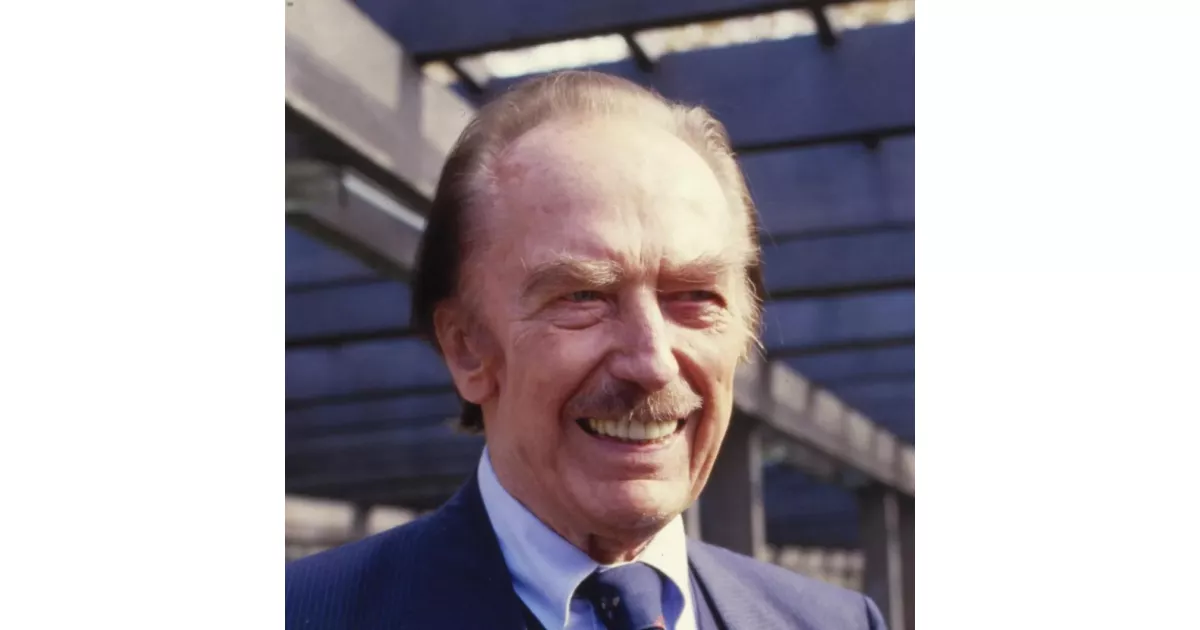Frederick Christ Trump Sr. (1905-1999) was an American real estate developer and businessman known for building and managing affordable housing in New York City, particularly in Brooklyn and Queens. He faced controversy over discriminatory rental practices. He is most notably the father of Donald Trump, the 45th U.S. president. Trump's business acumen and real estate empire significantly influenced his son's career and approach to business. He was a major figure in shaping New York City's housing landscape after World War II.
1901: Return to Kallstadt
In 1901, Friedrich Trump returned to Kallstadt, Germany, after amassing wealth during the Klondike Gold Rush.
1904: Birth of First Child Elizabeth and Return to Kallstadt
In 1904, Friedrich and Elizabeth Trump's first child, Elizabeth, was born in New York City, after which the family returned to Kallstadt.
July 1, 1905: Family Returns to New York
On July 1, 1905, Fred Trump's family returned to New York City and settled in the Bronx.
October 11, 1905: Birth of Frederick Christ Trump Sr.
On October 11, 1905, Frederick Christ Trump Sr. was born. He later became a prominent American real-estate developer and businessman.
1907: Birth of John G. Trump
In 1907, John G. Trump, Fred's younger brother, was born.
September 1908: Family Move to Woodhaven, Queens
In September 1908, Fred Trump's family relocated to Woodhaven, Queens.
1918: Father's Death and High School
In 1918, Fred Trump's father died during the flu pandemic. From 1918 to 1923, Fred attended Richmond Hill High School in Queens while working various jobs.
January 1923: Full-Time Work and Carpentry Studies
In January 1923, Fred Trump began full-time work pulling lumber to construction sites and studying carpentry.
1923: High School Graduation
In 1923, Fred Trump graduated from Richmond Hill High School.
1924: "E. Trump & Son" Advertising
By 1924, the company name "E. Trump & Son" appeared in advertising, and Trump allegedly used a loan from his mother to build his first house.
1926: Purported Building of Homes in Hollis, Queens
By 1926, Trump purportedly built 19 more homes in Hollis, Queens, selling some to finance others.
May 1927: Trump arrested at KKK rally
In May 1927, Fred Trump was arrested at a Ku Klux Klan (KKK) rally in Queens for "refusing to disperse from a parade when ordered to do so". The charge was later dismissed.
1927: Arrest at Ku Klux Klan Demonstration
In 1927, Fred Trump was arrested at a Ku Klux Klan demonstration. However, there is no conclusive evidence that he supported the organization.
1927: Incorporation of Company and Arrest at KKK Rally
In 1927, Fred Trump's company was incorporated, and he was arrested at a Ku Klux Klan demonstration.
1928: Fred Trump's Address
In 1928, Fred Trump's address in Jamaica, Queens, was recorded on various documents.
1933: Opening of Trump Market
In 1933, Fred Trump built one of New York City's first modern supermarkets called Trump Market, modeled after King Kullen.
1934: Acquisition of Mortgage-Servicing Subsidiary
In 1934, Fred Trump and a partner acquired the mortgage-servicing subsidiary of Brooklyn's J. Lehrenkrauss Corporation, leading to real estate ventures and rising fame.
1934: Federal Court Argument
In 1934, Fred Trump argued in federal court why he should deserve a dissolved company's mortgage servicer, potentially exaggerating his career length.
1934: Utilization of FHA Loan Subsidies
In 1934, Fred Trump made use of loan subsidies created by the Federal Housing Administration (FHA).
1936: House Construction with 400 Workers
By 1936, Fred Trump had 400 workers digging foundations for houses priced between $3,000 and $6,250.
1937: Birth of Maryanne Trump Barry
In 1937, Fred and Mary Trump's first child, Maryanne Trump Barry, was born.
1938: Birth of Fred Trump Jr.
In 1938, Fred and Mary Trump's second child, Fred Trump Jr., was born.
1938: Referred to as "the Henry Ford of the Home Building Industry"
In 1938, the Brooklyn Daily Eagle called Fred Trump "the Henry Ford of the home building industry".
1940: Fred Trump's Address
In 1940, Fred Trump's address in Jamaica, Queens, was recorded on various documents.
1941: Supported Jewish causes
In 1941, partly due to the prominence of Jews in New York, Fred Trump supported Jewish causes, with contributions that convinced some he practiced Judaism. This support started two weeks after the U.S. entered World War II.
1941: Defense Housing Project in Bensonhurst
In 1941, the federal Office of Production Management approved the use of FHA funding for defense housing in Bensonhurst, Brooklyn, but the project was later dissolved.
1942: Construction of 2,000 Homes in Brooklyn
By 1942, Fred Trump had built 2,000 homes in Brooklyn using FHA funds.
1942: Birth of Elizabeth Trump Grau
In 1942, Fred and Mary Trump's third child, Elizabeth Trump Grau, was born.
1944: Wartime Apartment Construction
By 1944, Fred Trump had constructed 1,360 wartime apartments in Norfolk, Virginia, along with barracks and garden apartments for U.S. Navy personnel.
1947: Shore Haven Construction Begins
In 1947, Fred Trump started building Shore Haven in Bensonhurst, Brooklyn, a project that would include 32 six-story buildings and a shopping center.
1948: Birth of Robert Trump
In 1948, Fred and Mary Trump's fifth child, Robert Trump, was born.
1949: Completion of Shore Haven
In 1949, Fred Trump completed Shore Haven in Bensonhurst, Brooklyn, covering 30 acres and securing $9 million in FHA funding.
1950: Construction of Beach Haven Apartments
In 1950, Fred Trump built the 23-building Beach Haven Apartments near Coney Island, obtaining $16 million in FHA funds.
1954: Senate Investigation for Windfall Gains
In 1954, Fred Trump was included in a list of city builders accused of profiteering from government contracts and investigated by a U.S. Senate banking committee for windfall gains.
1954: Senate Committee Investigation for Profiteering
In 1954, Fred Trump was investigated by a U.S. Senate committee for allegedly profiteering from government contracts.
1961: Donation to Robert F. Wagner Jr.'s Re-election Campaign
In 1961, Fred Trump donated $2,500 to the re-election campaign of New York mayor Robert F. Wagner Jr., assisting his favor for the construction of Trump Village.
1961: Contributed to city politicians
In 1961, Fred Trump, registered as a Republican, contributed to Democratic city politicians in New York, including $2,500 to Mayor Wagner's campaign, which enabled the construction of Trump Village.
1963: Construction of Trump Village
In 1963, construction began on Trump Village, a large apartment complex in Coney Island, and one of Fred Trump's biggest projects.
July 1, 1965: Purchase of Steeplechase Park
On July 1, 1965, Fred Trump purchased Coney Island's Steeplechase Park for $2.3 million with plans to build luxury apartments.
January 27, 1966: Testimony Regarding Profiteering Allegations
On January 27, 1966, Fred Trump testified regarding allegations of windfall profiteering, stating that he had personally done nothing wrong.
March 31, 1966: FBI Correspondence Regarding Trump
Prior to Fred Trump's deposition on March 31, 1966, a deputy attorney general corresponded with the FBI about reports it had on him.
September 1966: Demolition of Steeplechase Park's Pavilion of Fun
In September 1966, Fred Trump demolished the Pavilion of Fun at Steeplechase Park in a highly publicized ceremony.
1966: New York State Investigation for Profiteering
In 1966, Fred Trump faced another investigation, this time by New York State, concerning profiteering.
1968: Donald joins father's business and secures deferment
In 1968, Donald Trump joined his father Fred's real-estate business, starting in Brooklyn. Fred reportedly secured a deferment from the Vietnam War for Donald by arranging a diagnosis of bone spurs.
1968: Fair Housing Act of 1968
In 1968, the Fair Housing Act of 1968 was infringed.
1971: Donald Trump Becomes President of Real-Estate Business
In 1971, Donald Trump assumed the role of president in his father's real-estate business.
1971: Donald becomes president of the company
In 1971, Donald Trump became the president of the company, with Fred Trump becoming the chairman.
July 1972: Test applicants sent to Trump-owned complexes
In July 1972, after complaints of discrimination, the New York City Commission on Human Rights and the Urban League sent test applicants to Trump-owned complexes, finding that white people were offered apartments while black people were generally turned away.
October 1973: Justice Department files civil rights lawsuit
In October 1973, the Civil Rights Division of the U.S. Department of Justice (DoJ) filed a civil rights lawsuit against the Trump Organization (Fred Trump, chair, and Donald Trump, president) for infringing the Fair Housing Act of 1968. In response, Trump attorney Roy Cohn countersued for $100 million in damages, accusing the DoJ of false accusations.
1973: Company becomes the Trump Organization
Around 1973, Donald Trump began calling the company 'the Trump Organization'.
1974: Trump acquires stake in Starrett City
In 1974, Trump acquired up to 20% of Brooklyn's Starrett City, a large, federally subsidized housing complex which opened with the stated desegregation goal of renting 70% of its units to white people and the rest to minorities.
June 10, 1975: Consent decree signed between DoJ and Trump Organization
On June 10, 1975, a consent decree between the DoJ and the Trump Organization was signed, with both sides claiming victory. The decree prohibited the Trumps from "discriminating against any person in the ... sale or rental of a dwelling" and required them to advertise vacancies in minority papers, promote minorities to professional jobs, and list vacancies on a preferential basis. It also ordered the Trumps to become thoroughly acquainted with the Fair Housing Act of 1968.
1975: Tenants hold rent strike
In 1975, tenants of two of Trump's Norfolk tower complexes held a monthlong rent strike due to rodent and insect infestations, as well as problems with water heating, air conditioning, and elevator service.
September 1976: Trump arrested for code violations
In September 1976, after being ordered to correct code violations in a Seat Pleasant, Maryland property, Trump was invited to the property to meet with county officials and was arrested on site, then released on $1,000 bail.
1976: Trump sets up trust funds for his children and grandchildren
In 1976, Trump set up trust funds of $1 million for each of his five children and three grandchildren, which paid out yearly dividends.
1981: Death of Fred Trump Jr.
Fred Trump Jr. died in 1981.
1982: Trump appears on Forbes 400 list
Trump appeared on the initial Forbes 400 list of richest Americans in 1982 with an estimated $200 million fortune split with his son Donald. That same year, Fred sold two Norfolk towers and some Hampton Roads military housing, the latter for $8–9 million.
1985: Horatio Alger Award
In 1985, Fred Trump received the Horatio Alger Award for "distinguished Americans," presented by Ruth Peale.
1985: Biography repeats fabrication
In 1985, Jerome Tuccille's biography of Donald Trump repeated Fred Trump's fabrication that he was born in New Jersey and erroneously stated that his middle name was Charles.
1985: Louise Sunshine leaves organization
Louise Sunshine, the organization vice president from 1973, left the company in 1985.
1986: News article concerning political donations
In 1986, the FBI released a small file it had on Fred Trump, which includes a news article concerning political donations by Trump Management.
1987: The Art of the Deal Allegations
In 1987, Donald Trump's 'The Art of the Deal' alleged that Fred Trump was born in New Jersey and was the son of an immigrant from Sweden, further perpetuating false claims about his origins.
1987: Fred invests in Trump Palace Condominiums
In 1987, when Donald's loan debt to his father exceeded $11 million, Fred invested $15.5 million in Trump Palace Condominiums.
1989: Advice to Donald Regarding Marital Affairs
In 1989, while Donald was married to Ivana, Fred Trump reputedly lectured Donald that he could "have a thousand mistresses" but should avoid getting caught in a single extramarital affair.
December 1990: Donald seeks to amend Fred's will
In December 1990, Donald Trump sought to amend his father's will, which, according to Fred's daughter Maryanne Trump Barry, would have given the entire estate to Donald. Fred rejected the proposal.
1990: Fred provides funds for Trump's Castle bond payment
In late 1990, when an $18.4 million bond payment for Atlantic City's Trump's Castle was due, Fred sent a bookkeeper to buy $3.5 million in casino chips, which were not used, to facilitate the payment. The state's Casino Control Commission later found the transaction to constitute an illegal loan and fined the casino $65,000.
October 1991: Trump diagnosed with dementia
In October 1991, Trump was diagnosed with "mild senile dementia", with his physician citing symptoms of "obvious memory decline in recent years" and "significant memory impairment".
1991: Fred sells shares to Donald for $10,000
In 1991, Fred sold his shares in Trump Palace Condominiums to his son for $10,000, thus appearing to evade millions of dollars in gift taxes and benefiting from a legally questionable write-off.
1991: FBI memo implying ties to organized crime
In 1991, the FBI released a small file it had on Fred Trump, which includes a heavily redacted memo implying the bureau received intel regarding ties to organized crime.
1992: Donated property to NKF
In 1992, Fred Trump donated one of his least profitable properties to the National Kidney Foundation (NKF). According to The New York Times, it was one of the largest charitable donations he ever made, and he claimed a deduction proportional to its stated value of $34 million on his tax return.
1992: Subsidiary Setup to Funnel Finances
In 1992, Fred and Donald Trump established a subsidiary to channel Fred's finances to his children.
1992: Fred and Donald set up a subsidiary company
In 1992, Fred and Donald set up a subsidiary company in which each of Fred's living children owned a 20% stake.
1993: Biography asserts Fred was a philanderer
In 1993, Harry Hurt III's biography of Donald Trump asserted that Fred Trump was a philanderer, leading to him being known as the "King of Miami Beach".
1993: Fred attends Donald's wedding to Marla Maples
In 1993, despite being designated as the best man, Fred Trump needed to be reminded why he was at Donald's wedding (to Marla Maples).
1993: Shares of Trump's estate estimated
In 1993, the anticipated shares of Trump's estate amounted to $35 million for each surviving child. Most of his buildings were transferred to two grantor-retained annuity trusts under his and his wife's names.
1995: Transfer of assets via annuity payments
Between 1995 and November 1997, about two-thirds of Trump's assets were given to his four surviving children, who bought the remaining third via annuity payments.
November 1997: End of asset transfer via annuity payments
Between 1995 and November 1997, about two-thirds of Trump's assets were given to his four surviving children, who bought the remaining third via annuity payments.
1997: Apartments acquired
Trump's four surviving children acquired apartments in 1997.
1998: Promissory notes transferred to Trump Organization subsidiaries
In 1998, a year before Fred's death, while he was suffering from Alzheimer's disease and his son Robert had power of attorney, the promissory notes from the 1982 sale were transferred to limited liability companies connected to Trump Organization subsidiaries.
June 25, 1999: Death of Frederick Christ Trump Sr.
On June 25, 1999, Frederick Christ Trump Sr. passed away. He was known as an American real-estate developer and the father of Donald Trump.
August 7, 2000: Death of Mary Trump
Fred Trump's widow, Mary, died on August 7, 2000, at age 88, also at Long Island Jewish Medical Center. Her and Fred's combined estate was then valued at $51.8 million.
December 2003: Sale of apartments reported
In December 2003, it was reported that Trump's four surviving children would sell the apartments they acquired in 1997 to an investment group led by Rubin Schron, priced at $600 million.
May 2004: Sale of apartments occurs
In May 2004, the sale of apartments by Trump's four surviving children to an investment group led by Rubin Schron occurred.
2004: Collective assets sold for 16 times their value
In 2004, the collective assets, valued at $41.4 million in 1997, were sold for over 16 times this value, avoiding hundreds of millions of dollars in gift taxes.
2005: Leak of Donald Trump's tax information
The 2016 leak of Donald Trump's tax information from 2005, which showed an income of $153 million, prompted The New York Times to investigate, leading to the 2018 exposé.
2015: Donald Trump claims receiving a small loan from his father
During his 2015 campaign for U.S. president, Donald Trump claimed that his father had given him "a small loan of a million dollars" which he used to build "a company that's worth more than $10 billion".
May 2016: Reported use of pseudonym "Mr. Green"
In May 2016, Fortune reported that Fred Trump had used the false name "Mr. Green" to anonymously inquire about property values.
October 2016: FBI released small file on Fred Trump
In October 2016, the FBI released a small file it had on Fred Trump in response to Freedom of Information Act requests. The file included a news article from 1986 concerning political donations by Trump Management, and a memo from 1991 implying ties to organized crime.
2016: Leak of Donald Trump's tax information
The 2016 leak of Donald Trump's tax information from 2005, which showed an income of $153 million, prompted The New York Times to investigate, leading to the 2018 exposé.
February 2017: Israeli newspaper asserts racism inheritance
In February 2017, a liberal Israeli newspaper asserted that both Donald Trump and Benjamin Netanyahu had inherited racism from their fathers.
October 2018: Reported lack of significant financial contributions to charities
In October 2018, The New York Times reported in an exposé on Fred Trump's financial records that they had found no evidence that he had made any significant financial contributions to charities.
October 2018: New York Times exposé on Fred and Donald Trump's finances
In October 2018, a New York Times exposé on Fred and Donald Trump's finances revealed that Fred created 295 income streams for Donald and concludes that the latter "was a millionaire by age 8", receiving $413 million from Fred's business empire over his lifetime, including over $60.7 million in loans, which were largely unreimbursed.
2018: New York Times details tax fraud
As detailed in 2018 by The New York Times, the business entity had no apparent legitimate purpose and was evidently used to conduct tax fraud by funneling millions of dollars of Fred's wealth to his progeny without paying gift taxes.
2018: Opined criminal contributions
In 2018, Jonathan Chait, writing for New York magazine, opined that many of Fred Trump's contributions to Donald were by definition criminal in nature.
2018: Psychological profile asserts Fred was anti-Semitic
In 2018, Justin A. Frank's psychological profile of Donald Trump asserted that Fred Trump was anti-Semitic.
2018: New York Times publishes exposé
In 2018, The New York Times published an exposé revealing that the properties sold in 2004 were valued over 16 times their previously declared worth. Fred and Mary reportedly provided their children with over $1 billion altogether, which should have been taxed at the rate of 55% for gifts and inheritances, but records show that a total of only $52.2 million (about 5%) was paid.
2018: The New York Times Report on Family Finances
In 2018, The New York Times reported that Fred and Mary Trump provided over $1 billion to their children, evading over $500 million in gift taxes.
February 1, 2019: Investigation of Maryanne Trump Barry
By February 1, 2019, Maryanne Trump Barry was being investigated for possible judicial misconduct regarding the schemes, but this was mooted later in the month due to her retirement.
2019: Outstanding promissory notes as of 2019
In 2019, promissory notes were apparently outstanding.
2020: Fact-checking company conclusion
In mid-2020, the fact-checking company Logically concluded that there was a lack of clear evidence that Fred Trump was a Nazi supporter.
2020: MeidasTouch cited empty wagon quote
In mid-2020, the political action committee MeidasTouch cited the "empty wagon" quote from Fred Trump's Horatio Alger Association speech, arguing that Donald Trump squandered the fortune he inherited. Also in 2020, Mary L. Trump claimed in her book that Donald dismissed and derided Fred when he began to succumb to Alzheimer's, and asserted Fred was a high-functioning sociopath.
2020: Death of Robert Trump
Robert Trump died in 2020.
2021: Donald's disparaging remarks about Germans
In 2021, according to a book about Donald Trump's last year as president, Donald spoke disparagingly of German Chancellor Angela Merkel, using a slur and referring to his father as "the biggest kraut of them all."
2023: Media Outlets Highlighted Fred's Arrests
Following Donald Trump's arrest in New York in 2023, some media outlets pointed out that his father, Fred Trump, had been arrested twice.
2023: $1 million in 1976 equals $5.3 million in 2023
In 2023, $1 million in 1976 equals $5.3 million.
2023: Inflation adjustment of 2018 amount
In 2023, the $413 million Donald Trump received from Fred's business empire in 2018 equates to $483.6 million, and the $60.7 million in loans equates to $163.9 million.
2024: Donald's claim about father's advice
During his 2024 U.S. presidential campaign, Donald Trump said that his father had told him to never say "Nazi" or mention Hitler.
2024: Article Claims Denial of Emotional Nourishment
In 2024, an article in Clio's Psyche claimed that Fred Trump denied Donald of "basic, life-affirming emotional nourishment", resulting in Donald's "absence of moral responsibility".
Mentioned in this timeline

Donald John Trump is an American politician media personality and...

John F Kennedy JFK was the th U S President...

Elizabeth II reigned as Queen of the United Kingdom and...

Benjamin Bibi Netanyahu is a prominent Israeli politician and diplomat...
Germany officially the Federal Republic of Germany is a nation...

Inflation in economics signifies an increase in the average price...
Trending

50 minutes ago Brook Lopez's Double-Double, Zubac Trade Impact, and Clippers Notes Highlighted.
51 minutes ago House of the Dragon Season 3: Total War and Targaryen Battle Teased.

51 minutes ago Josh Giddey and Tre Jones face minute restrictions in Sunday's NBA games.
51 minutes ago HBO Max unveils new shows and films for streaming the week of Feb. 20, 2026.

52 minutes ago Jessie Buckley triumphs at 2026 BAFTAs, eyes Oscars victory after best actress win.
52 minutes ago Travel Chaos: Winter Storm and Cancellations Disrupt Dominican Republic and Florida Airports
Popular

Jesse Jackson is an American civil rights activist politician and...

Barack Obama the th U S President - was the...

Bernie Sanders is a prominent American politician currently serving as...

Michael Joseph Jackson the King of Pop was a highly...
The Winter Olympic Games a major international multi-sport event held...
WWE Raw a professional wrestling television program by WWE airs...


